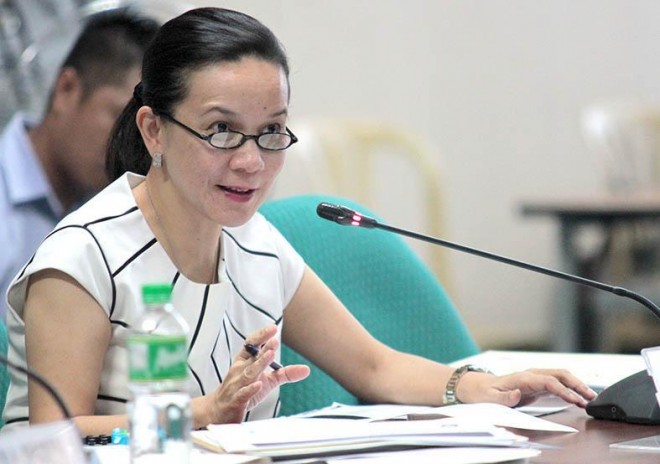Senator Grace Poe is urging local government leaders to support the national anti-drug drive by institutionalizing a rewards system for informants who help authorities apprehend drug dealers, couriers and manufacturers.
Poe said local government units (LGUs) can follow the model of Operation: Private Eye, a monetary reward system being used by the Philippine Drug Enforcement Agency (PDEA) for information that leads to the seizure of dangerous drugs and arrest of drug personalities.
Last year, the PDEA arrested 13,792 drug personalities and seized P6 billion worth of illegal drugs and chemicals. Half of the anti-drug operations are buy-bust, relying on tips and agents’ intelligence reports.
“We cannot succeed in our anti-drug campaign if we cannot rally everyone, especially local leaders, to our cause,” Poe, who chairs the Senate committee on dangerous drugs, said in a statement on Wednesday.
“Many of those who have information are scared to come forward because they risk not only their safety but the security of their families, who rely on them for support,” she added.
Poe said the monetary reward from government would provide financial assistance to informants and deliver a message to all citizens that the government is serious in combating illegal drug activities.
In 2014, she said, the PDEA awarded P18 million to 28 informants who provided information through Operation: Private Eye. This cooperation resulted in the arrest of 52 people and the seizure of 670 kilos of shabu, 347 kilos of ephedrine, 16 kilos of marijuana, 3,897 ecstasy tablets, 515 “fly high” capsules, and other chemicals. One of the informants received as much as P2 million.
READ: It takes guts to be a millionaire: Drug tipsters get P2M each | Informant who led cops to shabu labs in Masbate gets P1.5M reward
“While we want to give incentives, the rewards system is not about the money but the willingness of people to also assume responsibility for making their neighborhoods and workplaces safe and free from criminal elements,” said Poe.
The senator pointed out that the LGUs’ network, especially in the barangays, remained an untapped resource in the fight against dangerous drugs, saying that even with the Barangay Anti-Drug Abuse Council (BADAC), “citizen participation in the anti-drug campaign is still very low.”
She said the Philippines has one of the highest rates of methamphetamine use in Asia, with an estimated 960,000 or 2 percent of the adult population using the drug popularly known as shabu.
According to PDEA, around 20 percent or 8,400 of the country’s 42,000 barangay (villages) are “drug-affected” —meaning they host a user, pusher, producer or cultivator, or other drug personality.
Last year, anti-drug enforcement agents rescued 181 minors, including a six-year-old—the youngest to be apprehended for drug activity since 2003—who were using or selling illegal drugs.
“The fight against dangerous drugs is the fight of every parent, every teacher, every worker and every official. We have a duty to protect our children and ensure that these dangerous drugs never reach them,” Poe said.
“Private Eye” informants may share their information with PDEA by phone (920-0967), email (iis.pdea@yahoo.com), or by filling up the Information Report Form and sending this by mail or messenger to Operation “Private Eye” c/o Room 207 PDEA Bldg., NIA Northside Road, NGC Brgy. Pinyahan, Quezon City.
The senator said the LGUs can also establish a similar system that will not reveal the identity and compromise the security of its informants. Maila Ager/IDL
